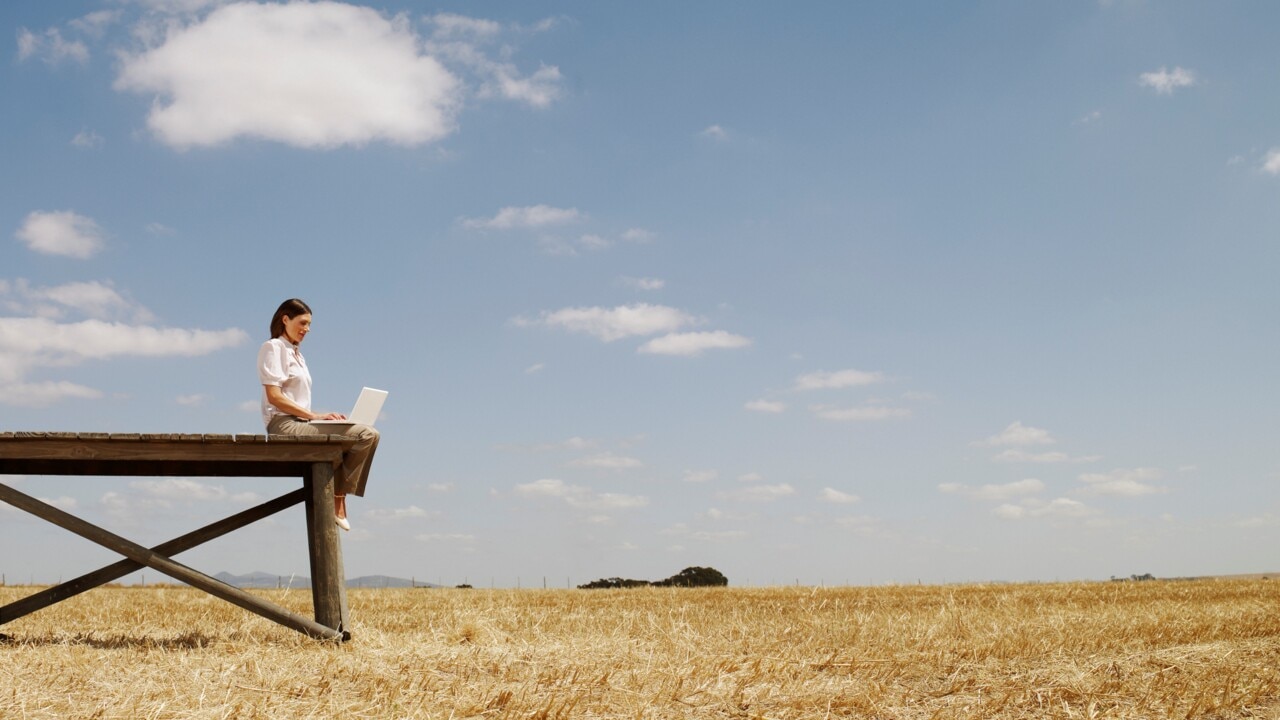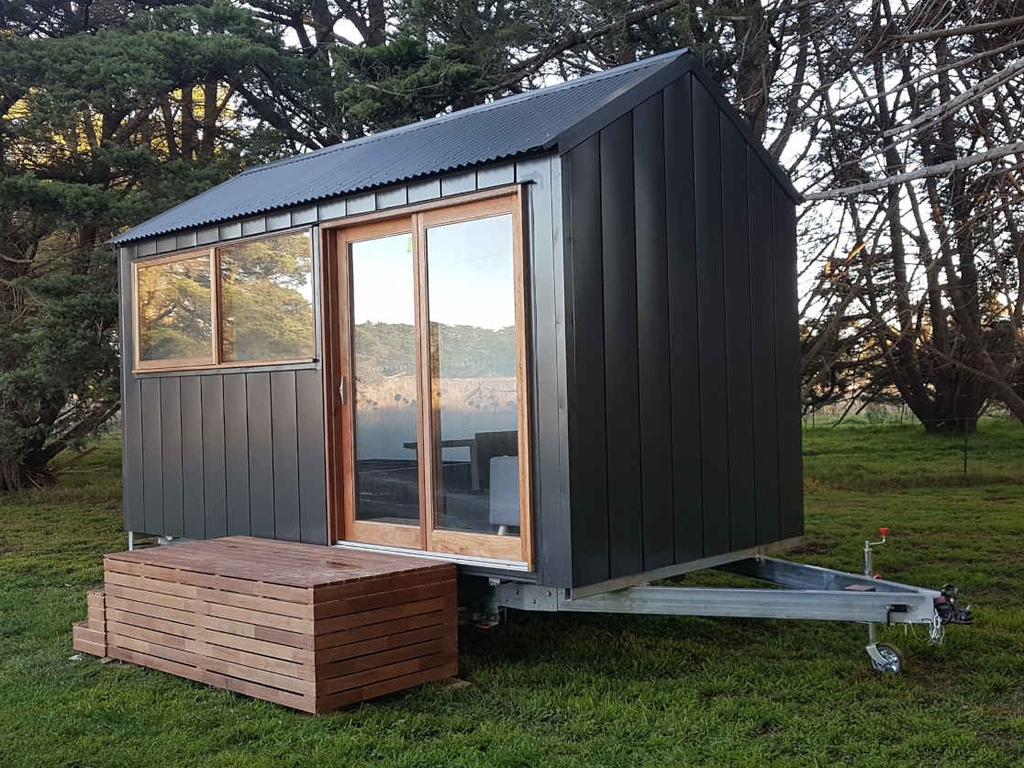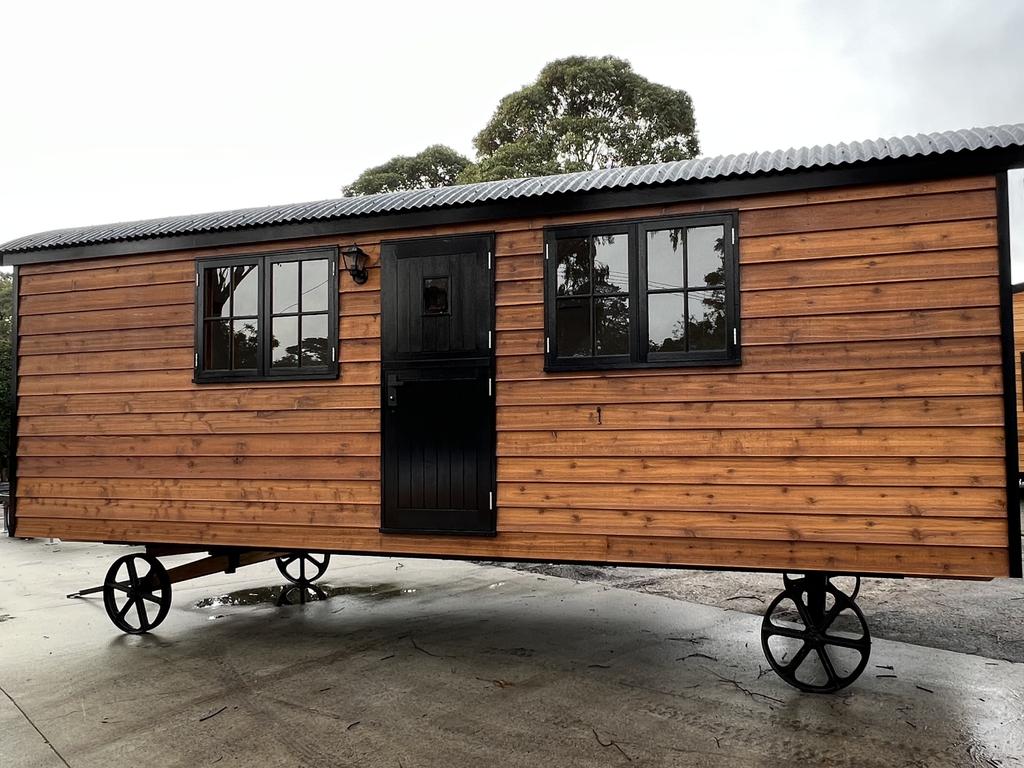Money spinner lures farm hosts
More farmers are looking into this strangely easy way to boost the bottom line while easing the rural housing shortage.

The tiny house market is booming and Victorians in particular have embraced the growing tourism movement with bookings surging by up to 75 per cent since Covid lockdowns ended last year.
Tiny Away, which supplies turnkey-ready tiny homes to rural property owners and allows them to share in any revenue, opened its doors in June 2020. By the end of 2020 it saw a 660 per cent increase in bookings across its 120 properties in Australia and New Zealand compared with the first pre-Covid quarter of the year.
Co-founder Jeff Yeo said for the first half of this year, Tiny Away had year-on-year revenue growth of almost 218 per cent. Tiny houses in Victoria had booking increases of 40 to 75 per cent.

FARMERS WANT IN
The surging market has initiated an increase in demand from rural landholders keen to host a tiny house as a way of generating extra income.
“Many farmers across Australia are still feeling the financial legacy and impact of bushfires, drought and Covid, and tiny house hosting offers them a way to generate income,” Mr Yeo said.
The idea of a tiny house stay has risen in popularity, especially in Australia and New Zealand where low-impact tourism and sustainability are sought.
“Tiny Away not only appeals to stressed-out city dwellers looking for an escape but also to travellers keen to reduce their environmental footprint,” Mr Yeo said.
Tiny Away plans to open an extra 300 houses over the next year.
“The first step has been to canvass regions that lend themselves to a Tiny Away stay – close to a major city but far enough away to give our guests a true ‘escape to nature’ – and then begin to recruit host landowners through a rigorous site assessment process,” he said.
Creating reliable, local partnerships was the key to their success.
“The social enterprise model within which we work with landowners means that these hosts become their own micro hoteliers, hosting tiny houses on their privately owned land, maintaining the houses, and hosting guests – all while sharing a cut of the earned revenue,” Mr Yeo said.
“What sets us apart is our network of local landowners who make a Tiny Away stay so unique. All our properties offer something different. Some are semi-secluded and close to activities, and others are in the middle of nowhere.”
MONEY SPINNER
While Tiny Away builds and supplies houses to landowners, there has also been strong demand from farmers going direct to local tiny home builders for the same reasons.
Universal Tiny Houses co-founder Tim Hutchins, of Clarkefield, said demand for short stay, farm accommodation and Airbnb-type houses had increased to a point where they were having to knock back orders.

“The majority of our demand is coming from the farming and rural sector seeking that extra cash income for short-stay accommodation,” Mr Hutchins said. “If you can get your five nights a week at $165 to $200 a night, and if it’s done well, it can be a very lucrative earner.”
DREAMING GOAT DAIRY
Macedon Ranges dairy goat farmers Sarah and Daniel Ajzner have two tiny homes on their 20ha property at Monegeetta and are able to make between $700 and $1500 a month per house.
“When operating a farm our size you need another income stream,” Sarah said.
“Tourism was a logical next step.
“We have the goats, we have the cheese and things of interest for people coming up from Melbourne.”

There were no major start-up costs for Sarah and Daniel.
Tiny Away supplied the homes, furniture and linen, and takes care of administration, marketing, bookings and communication with guests.
Revenue is shared between the parties.
“Obviously we wouldn’t be making as much if we managed them outright, but it’s a great arrangement for us with our young family,” Sarah said.
“We do the cleaning and change over between guests.
“It takes about 45 minutes – but we have a separate fee for that over and above our shared revenue.”
Demand has increased by 75 per cent post-Covid with more midweek bookings.
Sarah said there were two reasons people were attracted to their tiny homes.
“One, because we are operating a goat dairy and they come to experience the farm,” she said.
“The other they are specifically looking to experience a night in a tiny house.
“Some aren’t interested in the farm – only the nice view, aspect and to experience what it’s like inside a tiny house.
“We’ve also had a few guests thinking of moving into a tiny house and wanted to experience it first.”
Sarah said they enjoyed sharing their Dreaming Goat Dairy business with guests.
“It’s nice getting up early and there is a group in the dairy ready to join in and see what we do,” she said.
“It reinforces an appreciation for us and the lifestyle we have created.”
FOOT IN THE DOOR
Hangan Tiny Homes and Tiny Homes Australia’s Henry Hangan said it was the busiest it had been yet and would build 50 per cent more houses than last year.

“About 50 per cent of the builds are going to be lived in and 50 per cent are for Airbnb or holiday homes,” Mr Hangan said.
“I’ve been getting a lot more interest recently from the farming sector. We expect demand to continue rising. There are massive issues with rentals and houses post Covid. A lot of younger people are looking at tiny homes to get their foot in the door with something they actually own, not paying off someone else’s house by renting.”
Prices vary between builders but can start from $35,000 and extend beyond $220,000 for fully optioned models.




